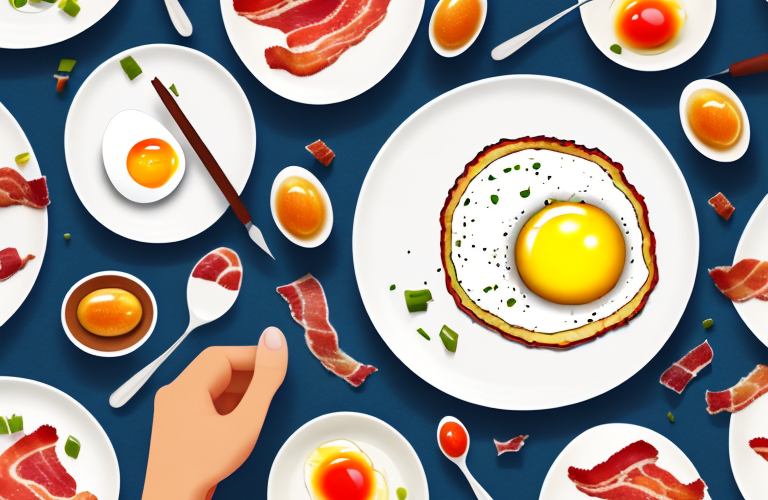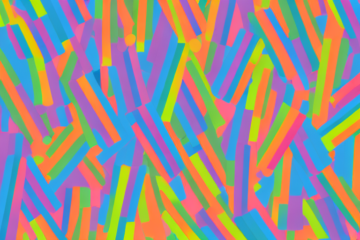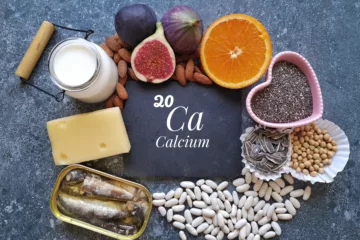High cholesterol is a common health condition that affects millions of people worldwide. It occurs when there is an excessive amount of cholesterol in the blood. Cholesterol is a type of fatty substance that is found in the bloodstream and is essential for the proper functioning of the body. However, when there is too much of it, it can lead to serious health problems. This article will educate you on all things high cholesterol, including its causes, symptoms, effects on the body, prevention and treatment options, and more.
What is High Cholesterol?
High cholesterol refers to a condition in which there is an excess of low-density lipoprotein (LDL) cholesterol in the bloodstream. LDL cholesterol is often referred to as “bad” cholesterol because it can build up in the walls of the arteries, leading to a condition known as atherosclerosis. This narrowing and hardening of the arteries can increase the risk of heart disease, stroke, and other related health problems.
There are several factors that can contribute to high cholesterol levels, including a diet high in saturated and trans fats, lack of physical activity, smoking, and genetics. It is important to get regular cholesterol screenings and make lifestyle changes if necessary to manage high cholesterol levels and reduce the risk of associated health problems.
How is High Cholesterol Diagnosed?
High cholesterol can be diagnosed through a simple blood test called a lipid profile. This test measures the levels of cholesterol, triglycerides, and other fats in the blood. Adults aged 20 years or older should have their cholesterol levels checked at least once every five years.
In addition to a lipid profile, your doctor may also perform a physical exam and ask about your medical history and lifestyle habits. They may ask about your diet, exercise routine, and whether you smoke or drink alcohol. These factors can all contribute to high cholesterol levels.
If your cholesterol levels are found to be high, your doctor may recommend lifestyle changes such as a healthier diet, regular exercise, and quitting smoking. They may also prescribe medication to help lower your cholesterol levels. It’s important to follow your doctor’s recommendations and make any necessary changes to reduce your risk of heart disease and other health problems.
Causes of High Cholesterol
There are several factors that can contribute to high cholesterol, including genetics, diet, and lifestyle. High cholesterol can be inherited genetically, and some people may have a genetic predisposition to the condition. A diet high in saturated and trans fats, as well as being overweight or inactive, can also contribute to higher cholesterol levels.
Other factors that can contribute to high cholesterol include age, gender, and certain medical conditions such as diabetes, hypothyroidism, and kidney disease. Additionally, certain medications such as beta-blockers and steroids can also increase cholesterol levels. It is important to regularly monitor cholesterol levels and make lifestyle changes or take medication as necessary to manage high cholesterol and reduce the risk of heart disease.
Symptoms of High Cholesterol
High cholesterol itself does not usually cause any symptoms. However, long-term high cholesterol levels can increase the risk of heart disease and stroke, which can cause symptoms such as chest pain, shortness of breath, and numbness or weakness in the arms or legs.
In addition to the risk of heart disease and stroke, high cholesterol levels can also lead to the development of fatty deposits in the liver. This condition, known as nonalcoholic fatty liver disease (NAFLD), can cause fatigue, abdominal pain, and swelling in the abdomen. NAFLD can progress to more serious liver conditions, such as cirrhosis and liver cancer, if left untreated.
Effects of High Cholesterol on the Body
High cholesterol can have a range of effects on the body. As mentioned, it can lead to atherosclerosis, which can increase the risk of heart disease and stroke. It can also contribute to other health problems, such as peripheral artery disease, kidney disease, and vision problems.
Additionally, high cholesterol levels can also affect the liver. When there is too much cholesterol in the blood, it can build up in the liver and cause fatty liver disease. This can lead to inflammation and scarring of the liver, which can eventually lead to liver failure.
Furthermore, high cholesterol can also impact cognitive function. Studies have shown that high levels of LDL cholesterol, also known as “bad” cholesterol, can increase the risk of developing dementia and Alzheimer’s disease. This is because cholesterol can build up in the brain and disrupt the normal functioning of brain cells.
Risk Factors for High Cholesterol
There are several risk factors for high cholesterol, including age, gender, genetics, diet, lifestyle, and certain medical conditions. Men and women over the age of 45 and women who have gone through menopause are at a higher risk of developing high cholesterol.
Genetics can also play a role in high cholesterol. If a close family member has high cholesterol, you may be more likely to develop it as well. Additionally, a diet high in saturated and trans fats can contribute to high cholesterol levels. Lack of physical activity and smoking can also increase your risk. Certain medical conditions, such as diabetes, hypothyroidism, and kidney disease, can also lead to high cholesterol. It is important to manage these risk factors through lifestyle changes and medication, if necessary, to prevent complications such as heart disease and stroke.
Prevention of High Cholesterol
Preventing high cholesterol involves making healthy lifestyle choices, such as maintaining a healthy weight, staying physically active, and eating a healthy diet. Limiting or avoiding foods high in saturated and trans fats can also help prevent high cholesterol levels.
In addition to these lifestyle choices, quitting smoking and reducing alcohol consumption can also help prevent high cholesterol. Smoking damages the walls of your blood vessels, making it easier for cholesterol to build up and form plaques. Alcohol, when consumed in excess, can also increase cholesterol levels and contribute to weight gain.
It’s important to note that genetics can also play a role in high cholesterol levels. If you have a family history of high cholesterol or heart disease, it’s important to talk to your doctor about your risk and any additional steps you can take to prevent high cholesterol.
Treatment Options for High Cholesterol
Treatment for high cholesterol typically involves a combination of lifestyle changes and medications. Lifestyle changes may include dietary modifications, regular exercise, and weight loss if necessary. Medications may include statins, cholesterol absorption inhibitors, PCSK9 inhibitors, fibrates, and bile acid sequestrants.
It is important to note that treatment plans for high cholesterol may vary depending on the individual’s overall health and medical history. For example, some individuals may not be able to tolerate certain medications due to side effects or interactions with other medications they are taking. In these cases, alternative treatment options may need to be explored.
In addition to lifestyle changes and medications, some individuals may benefit from complementary therapies such as acupuncture, massage, or herbal supplements. However, it is important to discuss these options with a healthcare provider before incorporating them into a treatment plan, as they may not be appropriate for everyone and could potentially interact with other medications or health conditions.
Medications for High Cholesterol
Medications for high cholesterol are designed to lower cholesterol levels in the blood. Statins are a commonly prescribed type of medication that can lower LDL cholesterol and reduce the risk of heart disease and stroke. Other types of medications may be prescribed based on individual needs and health status.
In addition to medication, lifestyle changes such as a healthy diet, regular exercise, and quitting smoking can also help to lower cholesterol levels. It is important to work with a healthcare provider to determine the best course of treatment for high cholesterol and to monitor cholesterol levels regularly to ensure that treatment is effective.
Lifestyle Changes to Lower Cholesterol
Lifestyle changes can help lower cholesterol levels and reduce the risk of heart disease and other related health problems. These changes may include healthy dietary modifications, regular exercise, and maintaining a healthy weight. Quitting smoking and limiting alcohol intake can also have a positive impact on cholesterol levels and overall health.
One of the most effective dietary modifications to lower cholesterol is to reduce the intake of saturated and trans fats. These types of fats are commonly found in processed foods, fried foods, and fatty meats. Instead, focus on consuming more fruits, vegetables, whole grains, and lean proteins such as fish and poultry.
In addition to dietary changes, regular physical activity can also help lower cholesterol levels. Aim for at least 30 minutes of moderate-intensity exercise, such as brisk walking or cycling, on most days of the week. This can help improve overall cardiovascular health and reduce the risk of heart disease.
Diet and Nutrition to Lower Cholesterol
Dietary modifications can play a significant role in lowering cholesterol levels. A heart-healthy diet may include foods such as fruits, vegetables, whole grains, lean protein sources, and healthy fats. Limiting or avoiding foods high in saturated and trans fats, such as fried foods, processed meats, and full-fat dairy products, can also help lower cholesterol levels.
In addition to dietary modifications, regular physical activity can also help lower cholesterol levels. Exercise can increase the levels of high-density lipoprotein (HDL) cholesterol, also known as “good” cholesterol, which helps remove low-density lipoprotein (LDL) cholesterol, also known as “bad” cholesterol, from the bloodstream. Aim for at least 30 minutes of moderate-intensity exercise, such as brisk walking or cycling, on most days of the week.
Exercise and Fitness to Lower Cholesterol
Regular physical activity is an important part of maintaining good overall health and can have a positive impact on cholesterol levels. Even moderate exercise, such as brisk walking, can help lower LDL cholesterol levels and increase HDL cholesterol levels.
In addition to lowering cholesterol levels, exercise can also help with weight management. Being overweight or obese can increase cholesterol levels and put you at a higher risk for heart disease. Exercise can help you maintain a healthy weight and reduce your risk of developing heart disease.
It’s important to note that you don’t have to engage in intense exercise to see benefits. Even small amounts of physical activity, such as taking the stairs instead of the elevator or going for a short walk during your lunch break, can make a difference in your cholesterol levels and overall health.
Supplements and Natural Remedies to Lower Cholesterol
There are several supplements and natural remedies that may help lower cholesterol levels. These may include omega-3 fatty acids, fiber supplements, artichoke leaf extract, and plant sterols and stanols. It is essential to talk to a healthcare provider before starting any new supplements or remedies.
Omega-3 fatty acids are found in fish oil supplements and have been shown to reduce triglycerides and lower the risk of heart disease. Fiber supplements, such as psyllium, can help lower LDL cholesterol levels by binding to cholesterol in the digestive tract and preventing it from being absorbed into the bloodstream. Artichoke leaf extract has been found to lower total cholesterol and LDL cholesterol levels in some studies.
Plant sterols and stanols are naturally occurring substances found in fruits, vegetables, and grains that can also be taken as supplements. They work by blocking the absorption of cholesterol in the intestines, leading to lower LDL cholesterol levels. However, it is important to note that these supplements should not be used as a substitute for prescribed cholesterol-lowering medications and should only be taken under the guidance of a healthcare provider.
Managing High Cholesterol in Children and Teens
High cholesterol can affect people of all ages, and it can be especially concerning for children and teens. Making healthy lifestyle choices, such as regular exercise and a healthy diet, can help prevent high cholesterol levels in children and teens. In some cases, medications may be prescribed to manage high cholesterol levels.
It is important for parents and caregivers to be aware of the risk factors for high cholesterol in children and teens. These include a family history of high cholesterol, obesity, and certain medical conditions such as diabetes and hypothyroidism. Regular cholesterol screenings can help identify high cholesterol levels early on, allowing for prompt intervention and management.
Long-Term Outlook for People with High Cholesterol
The long-term outlook for people with high cholesterol can be positive with proper management and treatment. Making healthy lifestyle choices and taking prescribed medications as directed can help reduce the risk of related health problems and increase overall health and wellbeing.
One of the most effective ways to manage high cholesterol is through a healthy diet. This includes reducing intake of saturated and trans fats, increasing consumption of fruits and vegetables, and incorporating whole grains and lean proteins into meals. Regular exercise can also help improve cholesterol levels and overall cardiovascular health.
In some cases, medication may be necessary to manage high cholesterol. Statins are a common type of medication used to lower cholesterol levels. Other medications, such as bile acid sequestrants and niacin, may also be prescribed. It is important to follow medication instructions carefully and communicate any concerns or side effects with a healthcare provider.
Complications of Untreated or Poorly Managed High Cholesterol
Untreated or poorly managed high cholesterol can lead to a range of complications, such as heart disease, stroke, and peripheral artery disease. It can also increase the risk of other conditions, such as kidney disease and vision problems. Seeking prompt treatment and managing high cholesterol levels can help reduce the risk of these complications and promote overall health and wellbeing.
Overall, high cholesterol is a serious health condition that can have significant implications for health and wellbeing. However, with proper prevention, diagnosis, and treatment, high cholesterol can be successfully managed, and individuals can lead healthy and fulfilling lives.
One of the most effective ways to manage high cholesterol is through lifestyle changes, such as adopting a healthy diet and engaging in regular physical activity. A diet rich in fruits, vegetables, whole grains, and lean proteins can help lower cholesterol levels, while regular exercise can improve heart health and reduce the risk of complications associated with high cholesterol.
In addition to lifestyle changes, medication may also be necessary to manage high cholesterol levels. Statins, for example, are a commonly prescribed medication that can help lower cholesterol levels and reduce the risk of complications. It is important to work closely with a healthcare provider to determine the best course of treatment for managing high cholesterol.










